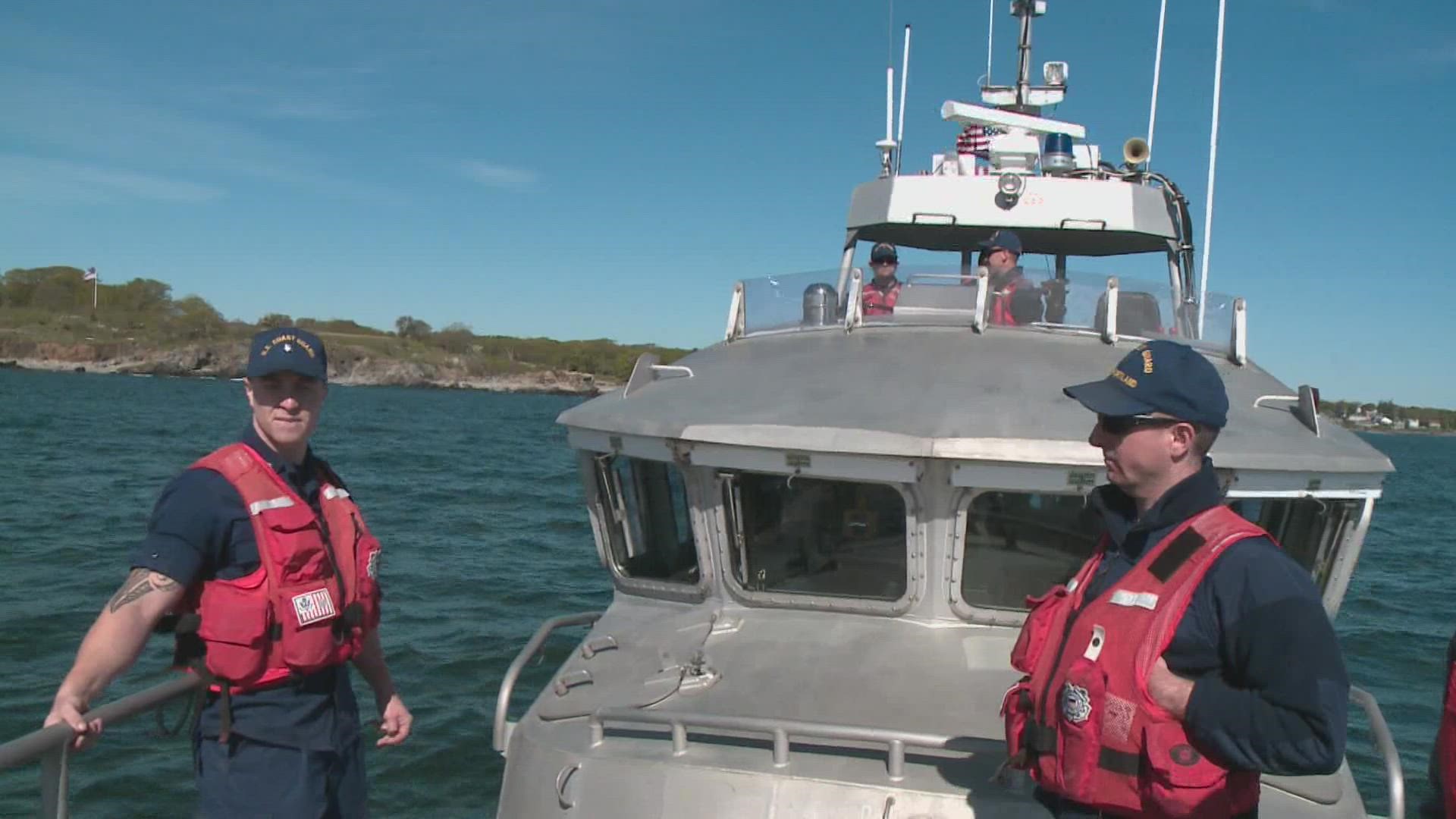SOUTH PORTLAND, Maine — Memorial Day weekend is right around the corner, and authorities in Maine are preparing for the busy boating season.
"Practicing beforehand is going to make everything that much easier, that much smoother. It comes second nature to us," David LeTarte with the U.S. Coast Guard said.
On Tuesday, members of the U.S. Coast Guard Sector Northern New England were taking part in man overboard and search and rescue exercises to ensure their crews were ready for the summer.
"It really trains and hones in the coxswain's ability to maneuver that very large vessel alongside a person in the water, and then the crew members ability to give distances and then physically bring them on board and medically assess them," Stuart Bangs, executive petty officer of the Coast Guard station in South Portland, said.
Members of the USCG Sector Northern New England recommend always making a float plan, which is telling someone where you're going so that in the case of an emergency, the Coast Guard can get to you quickly.
"File a float plan with a loved one. That's simply, 'Hey, I'm going out to this location. Should be back at this time. This is my intended track. Here's who I have onboard. Here's my cell phone number.' So, if you are overdue, they can reach out to us with that information, and that helps narrow our search for you," Bangs said.
Among safety tips like not boating under the influence and wearing a lifejacket, USCG staff also recommend getting a vessel safety check. In a vessel safety check, a USCG or Coast Guard Auxiliary member will come to you and inspect your boat to ensure it's ready for the season. You can request a vessel safety check on the USCG's website and app. It is free.
May 21-27 marks National Safe Boating Week, and it's organized by the nonprofit National Safe Boating Council, which recommends these tips for boaters:
- Take a boating safety course. Gain valuable knowledge and on-water experience in a boating safety course with many options for novice to experienced boaters.
- Check equipment. Schedule a free vessel safety check with local U.S. Coast Guard Auxiliary or U.S. Power Squadrons to ensure all essential equipment is present, working, and in good condition.
- Make a float plan. Always let someone on shore know the trip itinerary, including operator and passenger information, boat type and registration, and communication equipment on board.
- Wear a life jacket. Make sure everyone wears a life jacket – every time. A stowed life jacket is no use in an emergency.
- Use an engine cut-off device – it’s the law. An engine cut-off device, or engine cut-off switch, is a proven safety device to stop the boat’s engine should the operator unexpectedly fall overboard.
- Watch the weather. Always check the forecast before departing on the water and frequently during the excursion.
- Know what’s going on around you at all times. Nearly a quarter of all reported boating accidents in 2020 were caused by operator inattention or improper lookout.
- Know where you're going, and travel at safe speeds. Be familiar with the area, local boating speed zones, and always travel at a safe speed.
- Never boat under the influence. A BUI is involved in one-third of all recreational boating fatalities. Always designate a sober skipper.
- Keep in touch. Have more than one communication device that works when wet. VHF radios, emergency locator beacons, satellite phones, and cell phones can all be essential devices in an emergency.

